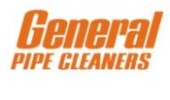
Gas technician apprenticeship program sparks heated debate
March 27, 2014 | By PATRICK CALLAN
A highly anticipated, and well attended, HRAI GTA chapter meeting on March 25 saw a panel of representatives from three major governing bodies face an onslaught of tough questions from the industry regarding the gas technician apprenticeship program in Ontario – which has remained stagnant since being created more than two years ago.
Linda Jones, manager of program development with the Ministry of Training, Colleges and Universities (MTCU); Royden Trainor, director of policy and programs for the Ontario College of Trades (OCOT); and John Marshall, director of fuel safety with the Technical Standards and Safety Authority (TSSA) explained to the room of 87 industry professionals that the problem ultimately boils to overlapping jurisdictional issues between OCOT and TSSA.
The MTCU, with the assistance of TSSA (which issues gas technician certificates of qualification) established the gas technician apprentice program over two years ago. Since then, OCOT came into existence in April 2013 and apprenticeship programs, both compulsory and voluntary, now fall under its jurisdiction. If OCOT were to assume responsibility of the gas technician apprenticeship, the college would then also have to issue a certificate of qualification – effectively creating a duplicate of the one already being issued by TSSA.
Led by HRAI, a strong push from the industry generated several discussions over the past year about how to resolve the issue. In December 2013, Martin Luymes, HRAI’s director of programs and regulations, and Peter Steffes, chairman of HRAI’s contractors division, attended a meeting with all three groups.
Luymes suggested OCOT and MTCU should make a regulatory change or re-interpret its regulations in order to recognize pre-existing certifications, such as those issued by TSSA. This, according to Luymes, would mean OCOT could issue certificates of apprenticeship for those who opt into the gas technician program and the TSSA would continue issuing the certificate of qualification.
“Regulations of this type are full of exemptions,” said Luymes at the recent HRAI GTA chapter meeting. “There is an obvious solution available,” he added, in reference to OCOT recognizing the TSSA certificate.
Marshall said that the TSSA is disappointed with how talks have gone, suggesting the TSSA has provided many different options to OCOT. He said the gas apprenticeship program would have been in place if it were not for the creation of OCOT.
“To have two certificates of qualification out there will not work. I’m going to have more safety issues than I can manage.” However, he added the TSSA is optimistic and hopeful the issues can be resolved.
For the past year, the MTCU has been trying to bring these two regulators together, Jones said, in order to solve what has become a “conundrum” of “significant regulatory issues.” The MTCU has also been hesitant to promote a trade that was not named under the legislation that created OCOT, she added.
Trainor conceded there are undoubtedly some overlapping challenges, but so far OCOT’s top brass has not been in favour of recognizing the TSSA certificate. However that does not mean OCOT has given up on the idea of some form of joint certificate, he added. “One of the important pieces of the college is to stay engaged as an industry and keep the conversation fresh.”
Luymes claimed the panel seemed to be repeating the same script from the December meeting and called them out for dragging their feet on this issue. “I personally am disappointed. It doesn’t look like much effort was put into this,” he said. “The burden is on the industry to apply pressure to the Ontario College of Trades.”
The next HRAI GTA chapter meeting will take place on April 29 at Fontana Gardens in Vaughan, ON. Guest speakers include Sarah Cooke from TSSA and Marina Tomasone from Toronto Hydro. For more information contact Kim Stark at k.stark@industrialadmin.ca.




